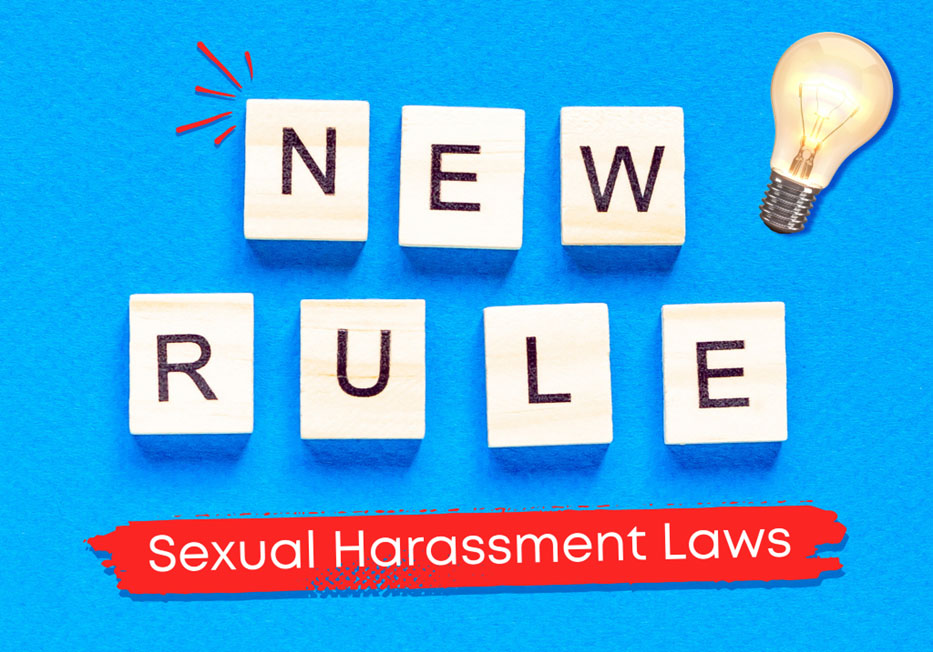
As of the 26th October 2024, new legislation is being introduced in the UK to strengthen protections against sexual harassment in the workplace.
For businesses, this means increased responsibility and a proactive duty to prevent harassment. Partnering with an eLearning company can provide valuable training resources to help businesses meet these new requirements – as failure to comply could lead to significant consequences.
But what exactly do the changes mean? And how can organisations ensure they stay on the right side of the law?
This article breaks down what the new legislation entails, how it differs from the current law, and what businesses need to do to comply.
We’ve also included a short video below, summarising the key points and what actions businesses should take.
What is Sexual Harassment?
Sexual harassment is any form of unwanted behaviour of a sexual nature. This could include inappropriate jokes, comments, touching, or advances that make someone feel uncomfortable, humiliated, or intimidated. It’s not limited to physical acts – it can also include verbal or non-verbal actions, like sending inappropriate images or making sexual gestures.
One key thing to remember is that it’s the impact on the recipient that matters, not the intent of the person committing the act. If the behaviour creates an environment that feels hostile, humiliating, or offensive, it can be classed as sexual harassment.
The New Legislation: What’s Changing?
With the new Worker Protection Act, which amends the Equality Act 2010, businesses will face three major changes in how they handle sexual harassment:
Third-Party Harassment
Previously, employers were not always held responsible for harassment by third parties, such as clients or customers. Under the new law, businesses will be required to prevent harassment from anyone an employee interacts with in their work – not just co-workers.
Positive Duty on Employers
This is one of the biggest changes. Businesses are now required to take proactive steps to prevent harassment. In the past, employers only had to respond when a complaint was made. Now, they must demonstrate that they are actively working to create a harassment-free workplace, even if no complaint has been raised. This might include providing regular training or updating policies.
Increased Powers for Regulators
The new legislation gives regulators, such as the Equality and Human Rights Commission, the authority to impose penalties even when no formal complaint has been lodged. If they find that a business is not doing enough to prevent harassment, they can take action.

Learn How To Create Personal Learning Journeys For FREE!
What Should Businesses Do to Comply?
To meet these new requirements, businesses should take several proactive steps:
Regular Training
All employees, from entry-level to leadership, should receive regular training on what sexual harassment looks like and how to prevent it. This training isn’t just a formality – it’s about embedding a culture of respect and awareness across the organisation. Make sure employees understand the company’s policies and feel confident in reporting issues.
Clear Reporting Procedures
Employees should know exactly how to report harassment if it occurs. Confidential reporting channels are crucial here, and staff should feel assured that their concerns will be taken seriously. Assigning specific individuals within HR or management to handle harassment reports can streamline the process and encourage employees to come forward.
Cultivating a Positive Workplace Environment
It’s important to establish an environment where harassment is not tolerated. This goes beyond policies – it’s about creating a workplace where everyone feels respected and supported.
Regular discussions, workshops, or team meetings can reinforce these values and empower staff to speak up if they witness inappropriate behaviour.
By taking these actions, businesses can significantly reduce the risk of harassment occurring and protect both their employees and their reputation.
What Happens if Businesses Don’t Comply?
The consequences for failing to meet the new legal requirements can be severe:
Financial Penalties
Regulators can impose substantial fines on businesses that do not take adequate steps to prevent harassment, which can have a major impact on a company’s finances.
Reputational Damage
Reputational damage can be just as costly as financial penalties. News of workplace harassment can spread quickly, leading to a loss of clients, difficulty in attracting talent, and a negative public image.
Legal Claims
Employers who fail to comply may also face an increase in legal claims from employees who have experienced harassment. This could result in hefty compensation payouts and long-term legal battles.
In Conclusion
The new Worker Protection Act introduces stricter obligations on businesses to prevent sexual harassment.
By taking proactive steps – such as providing regular training, implementing clear reporting procedures, and building a respectful workplace culture – companies can ensure they not only comply with the new law but also protect their employees.
An eLearning platform is an essential tool in delivering the targeted, effective training needed to meet legal requirements head-on. That’s why we offer bespoke eLearning solutions, off-the-shelf content, and virtual training resources designed to empower businesses to stay compliant and build safer, more accountable workplaces.
Get in touch today to discuss how we can support your training needs.













